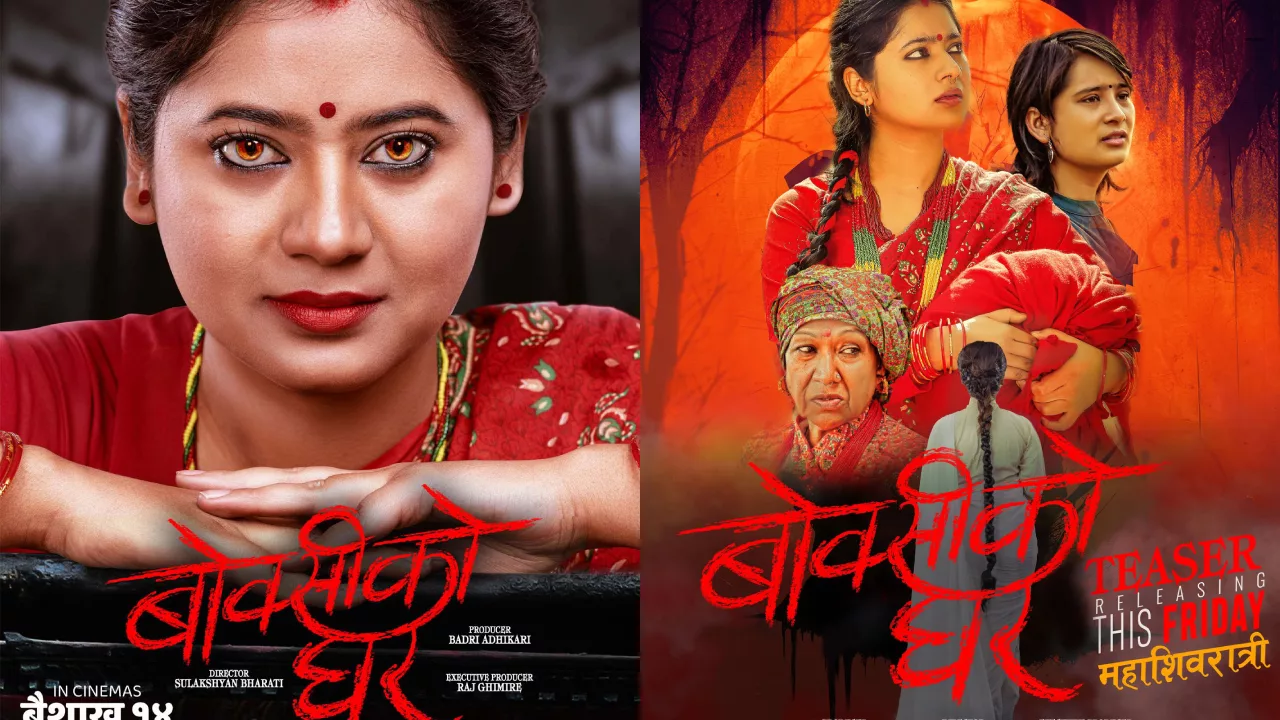“Boksi Ko Ghar”is a new nepali movie and is about a Kathmandu journalist who investigates a witchcraft accusation in a remote village. She discovers the reasons behind the accusation, including superstitions and societal issues. As she learns more, she faces ethical and personal challenges, eventually revealing a complicated situation that affects both the accused person and the village.
‘Boksi Ko Ghar’ is raw, unfiltered and disturbing. It shows how women in rural settings are still persecuted as witches.
The movie depicts the story of Junu—a little girl, played quite brilliantly by Shupala Sapkota—who likes to live her childhood to the fullest. She likes studying, dancing and Ravi—a friend who helps her with homework. But in an instant, she is robbed of that childhood. The next thing she knows, she is getting married to someone who could be her father’s age. Junu is confused as her world changes overnight. Everything she knows, her school, her home and Ravi are taken away.
The people around suddenly changes as she is married to the strange man and experiences trauma at night. Then the in laws send her back to her mother and only allows the girl to go back after she experiences her first menstrual cycle that means she was physically abused in her childhood.
Then the scene sifts towards a women who lives in the jungle in a tree away from anyone in a red saree who is called boksi. The women is observed to have some mental health issues and looks like she has experience a lot of traumas in the past that led her to call herself boksi.
Then the viewers get to know who she was and how she became mentally unstable without her family being around. In the story, it is explained that after her husband death, she was abused by many people including her own in laws and after she was caught with her father in law who blamed her stating that she had done some kind of spell which led him to be attracted to her and the witch craft ritual was done that same night and it led her to be traumatized and go to the jungle to spend the rest of her life there.
The movie involves many traumatic scene and the people watching the movie can also be traumatized. The movie involves many scenes of being tortured physically and mentally as well as many scenes involves traumatic scenes such as her childhood being stolen away, she being abused and mostely it revolves around the men who took advantage of her physically.
Moreover, the movie shows the harsh reality of our society. The social evils, polygamy and other various stuffs but mostely it depicts the harsh reality that a women has to face in her life. The constant disrespect that a women has to face, the physical and verbal abuse that she has to go through but morever, the responsibilities that a women has to fulfill of being a perfect wife, perfect in laws is shown in the movie.
The villagers assemble and pick up stones to throw at Junu. She falls to her death, but witchcraft persists beyong her death. With Junu, the issue doesn’t die. When she dies with the tormented child still inside her, the only thing that dies is her. A child, robbed of her childhood and beaten to death by society. The same society that built the system and bombarded women with tons of barriers that they deal with and go through life without really knowing their potential.
Once Junu falls to her death, the student is now under the tree with her head shaved as she yells “boksi” (witch). The ending scene symbolises the never-ending practices that are still prevalent today. It passes from one woman to another. From one society to another.

